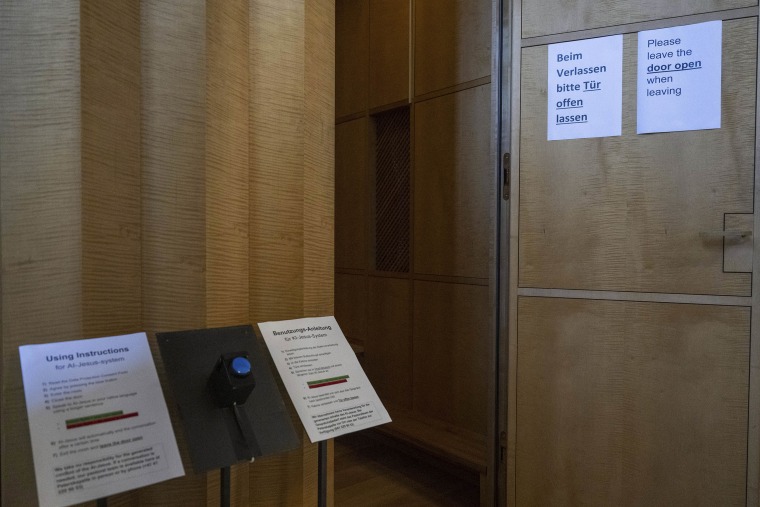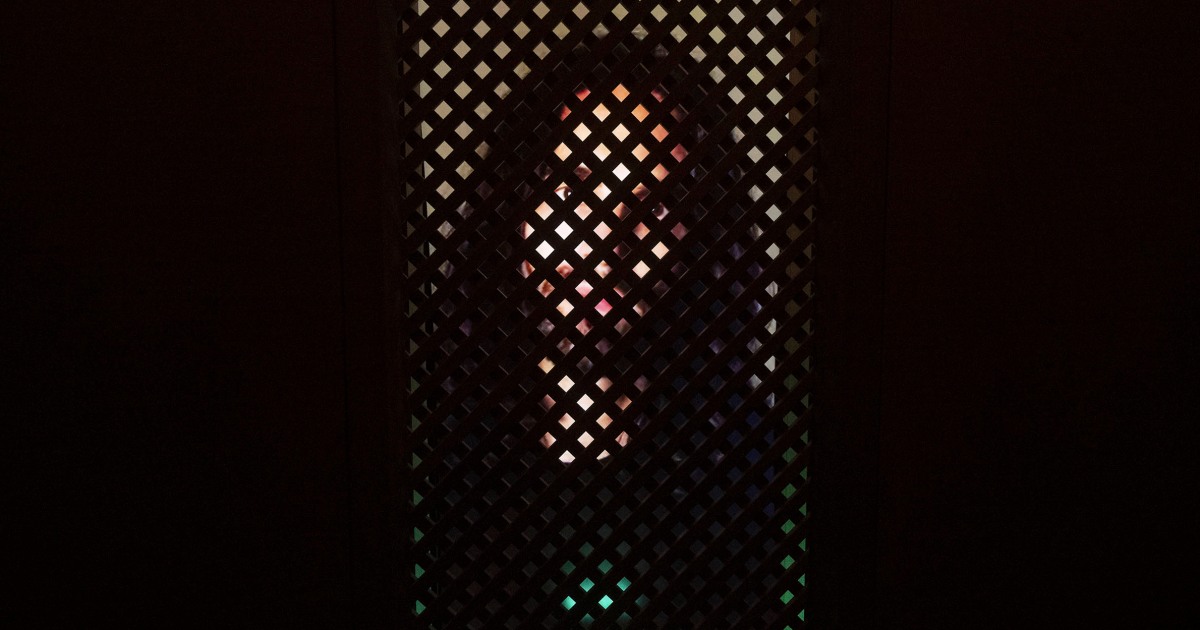A church in Switzerland experimented with artificial intelligence to create a digital version of Jesus, leading to a debate on if the move brought people closer to God or if it was just “blasphemous.”
St. Peter’s Chapel in Lucerne, Switzerland, began the two-month experiment called “Deus in Machina” in August, in which visitors spoke with the digital avatar powered by AI inside of a confessional booth.
The avatar, projected on a computer screen, offered advice to churchgoers based on scripture in more than 100 languages.
“Many people came to talk with him,” said chapel theologian Marco Schmid. “There were young people, older people — people really talked with him in a serious way.”
The project was developed by a Swiss IT expert Philipp Haslbauer, an IT specialist at the Lucerne University of Applied Sciences and Arts, who said he used OpenAI’s GPT-4o and an open-source version of the company’s Whisper product to power “AI Jesus,” according to the Associated Press.
Before visitors stepped into the confessional booth, the experience was outlined with instructions outside, including a disclaimer to not divulge personal information.
“Topics like relationships, love, topics like about God, they ask him what to do,” Schmid explained.

The researchers and religious leaders involved in the project released findings from the two-month experiment inside the 300-year-old church in November, according to the Associated Press.
About 900 conversations from visitors were transcribed, and some came more than once, the AP reported. Nearly 300 of these visitors filled out questionnaires after exiting the booth, which informed the results released last month.
The project leaders found that the experiment was largely a success, and that visitors who came out of the booth were moved or deep in thought, and found it easy to use, according to the AP.
Visitors spoke about topics ranging from the afterlife to true love, to feelings of solitude and the existence of God, according to the AP. Most visitors, mostly between the ages of 40 and 70, reported on the questionnaire that they were Christians, but agnostics, atheists, Muslims, Buddhists and Taoists also visited the booth.
While the findings were mostly positive, the experiment generated debate and controversy worldwide on social media.
Why is ‘AI Jesus’ stirring controversy?
Bishop James Long said the move was “not sacramental” and “truly just sacrilege” in a TikTok posted last month.
Haslbauer told the Associated Press he saw chatter on social media calling the experiment “blasphemous” and “the work of the devil.”
“If you read comments on the internet about it, some are very negative — which is scary,” Haslbauer said.
Schmid has said the “AI Jesus” was never meant to replace a priest, and instead was implemented to get people thinking about the intersection of the digital and the divine.
